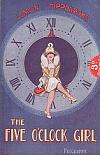
Brigadoon is a musical with a book and lyrics by Alan Jay Lerner, and music by Frederick Loewe. The song "Almost Like Being in Love", from the musical, has become a standard. It features two American tourists who stumble upon Brigadoon, a mysterious Scottish village that appears for only one day every 100 years. Tommy, one of the tourists, falls in love with Fiona, a young woman from Brigadoon.

The Music Man is a musical with book, music, and lyrics by Meredith Willson, based on a story by Willson and Franklin Lacey. The plot concerns con man Harold Hill, who poses as a boys' band organizer and leader and sells band instruments and uniforms to naïve Midwestern townsfolk, promising to train the members of the new band. Harold is no musician, however, and plans to skip town without giving any music lessons. Prim librarian and piano teacher Marian sees through him, but when Harold helps her younger brother overcome his lisp and social awkwardness, Marian begins to fall in love with him. He risks being caught to win her heart.
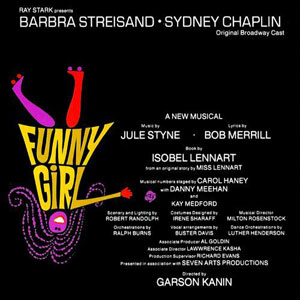
Funny Girl is a musical with score by Jule Styne, lyrics by Bob Merrill, and book by Isobel Lennart, that first opened on Broadway in 1964. The semi-biographical plot is based on the life and career of comedian and Broadway star Fanny Brice, featuring her stormy relationship with entrepreneur and gambler Nicky Arnstein.
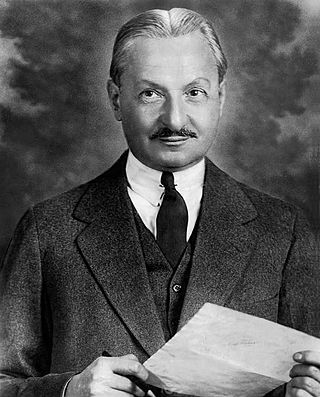
Florenz Edward Ziegfeld Jr. was an American Broadway impresario, notable for his series of theatrical revues, the Ziegfeld Follies (1907–1931), inspired by the Folies Bergère of Paris. He also produced the musical Show Boat. He was known as the "glorifier of the American girl". Ziegfeld is a member of the American Theater Hall of Fame.

Purlie is a musical with a book by Ossie Davis, Philip Rose, and Peter Udell, lyrics by Udell and music by Gary Geld. It is based on Davis's 1961 play Purlie Victorious.

42nd Street is a 1980 stage musical with a book by Michael Stewart and Mark Bramble, lyrics by Al Dubin and Johnny Mercer and music by Harry Warren. The 1980 Broadway production won the Tony Awards for Best Musical and Best Choreography and it became a long-running hit. The show was also produced in London in 1984 and its 2001 Broadway revival won the Tony Award for Best Revival.
Herbert David Ross was an American actor, choreographer, director and producer who worked predominantly in theater and film. He was nominated for two Academy Awards and a Tony Award.
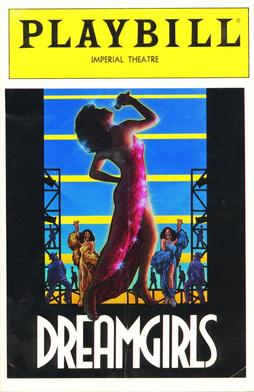
Dreamgirls is a Broadway musical, with music by Henry Krieger and lyrics and book by Tom Eyen. Based on the show business aspirations and successes of R&B acts such as The Shirelles, James Brown, Jackie Wilson, and others, but closely follows the story of The Supremes as the musical follows the story of a young Black female singing trio from Chicago, Illinois called "The Dreams", who become music superstars.
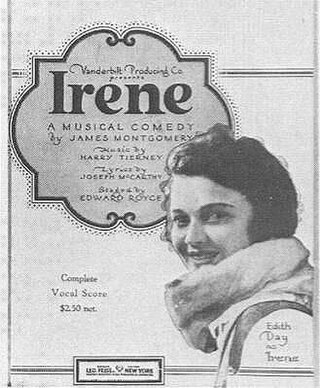
Irene is a musical with a book by James Montgomery, lyrics by Joseph McCarthy, and music by Harry Tierney. Based on Montgomery's play Irene O'Dare, it is set in New York City's Upper West Side and focuses on immigrant shop assistant Irene O'Dare, who is introduced to Long Island's high society when she is hired to tune a piano for a society gentleman.

The Passing Show of 1918 is a Broadway musical revue featuring music of Sigmund Romberg and Jean Schwartz, with book and lyrics by Harold Atteridge. The show introduced the hit songs "I'm Forever Blowing Bubbles" and "Smiles".

Carmelina is a musical with a book by Joseph Stein and Alan Jay Lerner, lyrics by Lerner, and music by Burton Lane.

Mr. Wonderful is a musical with a book by Joseph Stein and Will Glickman, and music and lyrics by Jerry Bock, Larry Holofcener, and George David Weiss.
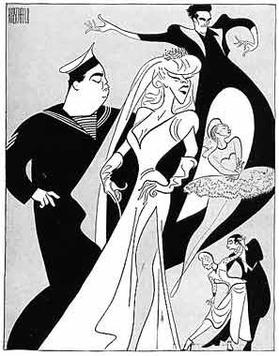
Follow the Girls is a musical with a book by Guy Bolton, Eddie Davis and Fred Thompson and music and lyrics by Dan Shapiro, Milton Pascal, and Phil Charig.

The Lucille Lortel Theatre is an off-Broadway playhouse at 121 Christopher Street in Manhattan's West Village. It was built in 1926 as a 590-seat movie theater called the New Hudson, later known as Hudson Playhouse. The interior is largely unchanged to this day.
A... My Name Is Alice is a musical revue conceived by Joan Micklin Silver and Julianne Boyd, first produced in 1983. It won the Outer Critics Circle Award for Best Revue. It consists of some 21 songs by composers such as David Zippel, Doug Katsaros, Winnie Holzman, and Lucy Simon, along with sketches by writers like Anne Meara.
Show Girl is a musical by William Anthony McGuire that ran from Jul 2, 1929 to Oct 5, 1929. A backstage musical, much of the action of the musical's story takes place at the Ziegfeld Theatre in New York City. Other scenes take place in Trenton, New Jersey; Brooklyn; and at a Penthouse apartment in New York City. The show tells the story of aspiring Broadway showgirl Dixie Dugan as she is pursued by four suitors. The music was written by George Gershwin, with lyrics by Ira Gershwin and Gus Kahn.
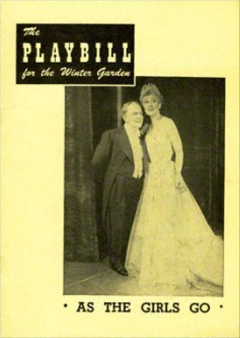
As the Girls Go is a musical with music by Jimmy McHugh, lyrics by Harold Adamson and a book by William Roos.

The Girl from 10th Avenue is a 1935 American drama film directed by Alfred E. Green. The screenplay by Charles Kenyon is based on the 1914 play Outcast by Hubert Henry Davies. The film was released in the United Kingdom as Men on Her Mind.

Wildflower or The Wildflower, is a musical in three acts with book and lyrics by Otto Harbach and Oscar Hammerstein II and music by Herbert Stothart and Vincent Youmans. The plot concerns a pretty Italian farmgirl, Nina, who has a fiery temper. She stands to inherit a fortune provided that she can keep her temper under control for six months. If she fails, the money goes to her cousin Bianca, who tries to provoke her. She manages to do it, and gets the money, as well as her man, Guido. Several of the songs were published, among which "Bambalina" and the title song were the most popular. The musical proved to be Day's last Broadway show before moving to London.

Look, Ma, I'm Dancin’! is a musical comedy in two acts with a book by Jerome Lawrence and Robert E. Lee, and music and lyrics by Hugh Martin. It was produced on Broadway in 1948.
